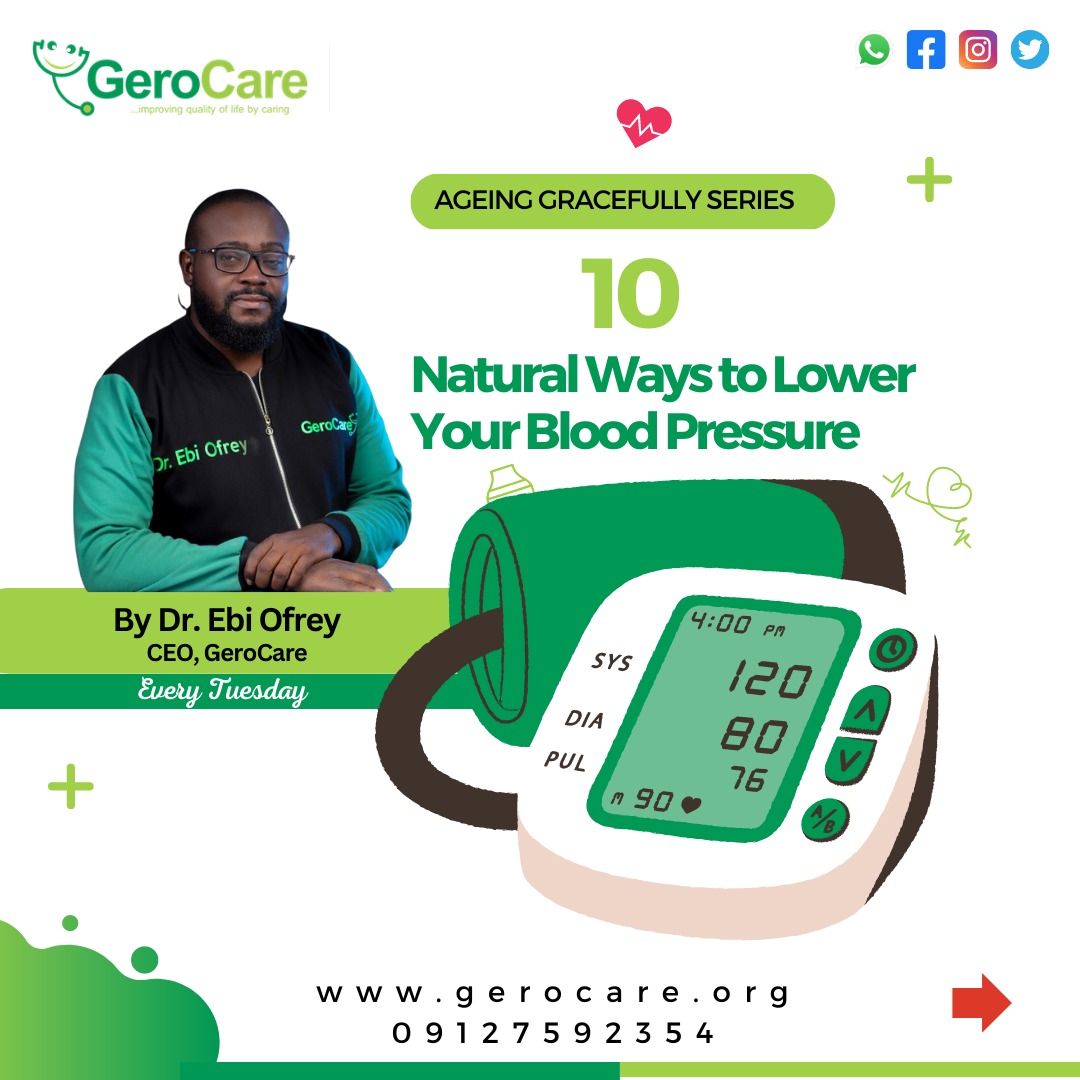By Dr. Ebi Ofrey CEO GeroCare
High blood pressure, also known as hypertension, is a common health problem among seniors. If left untreated, it can lead to serious health problems like heart disease, stroke, and kidney disease. Fortunately, there are many natural ways to lower your blood pressure without medication. Here are ten simple tips to get you started:
- Reduce your sodium intake: Eating too much salt can cause your blood pressure to rise. Try to limit your intake of processed and salty foods and opt for fresh fruits, vegetables, and whole grains instead.
- Increase your potassium intake: Potassium can help counteract the effects of sodium on your blood pressure. Foods like bananas, spinach, sweet potatoes, and tomatoes are high in potassium and can help lower your blood pressure.
- Eat a heart-healthy diet: A diet that is rich in fruits, vegetables, whole grains, and lean protein can help lower your blood pressure and reduce your risk of heart disease.
- Maintain a healthy weight: Being overweight or obese can increase your risk of developing hypertension. Losing even a small amount of weight can help lower your blood pressure.
- Exercise regularly: Regular physical activity can help lower your blood pressure, improve your heart health, and reduce your risk of other health problems.
- Quit smoking: Smoking can cause your blood pressure to rise and increase your risk of developing heart disease. If you smoke, talk to your doctor about ways to quit.
- Reduce your alcohol intake: Drinking too much alcohol can cause your blood pressure to rise. Try to limit your intake to one or two drinks per day, or less.
- Manage stress: Stress can cause your blood pressure to rise, so it is important to find ways to manage stress. Activities like meditation, yoga, or deep breathing exercises can help reduce stress.
- Get enough sleep: Sleep is important for maintaining healthy blood pressure levels. Try to get seven to eight hours of sleep each night.
- Monitor your blood pressure: It is important to regularly monitor your blood pressure, even if you feel fine. This can help detect any changes in your blood pressure and allow for adjustments to your treatment plan as needed.
In conclusion, there are many natural ways to lower your blood pressure without medication. By making simple changes to your lifestyle, such as eating a healthy diet, exercising regularly, and managing stress, you can help lower your blood pressure and reduce your risk of developing serious health problems. If you have concerns about your blood pressure, talk to your doctor about the best ways to manage it.
![]()

